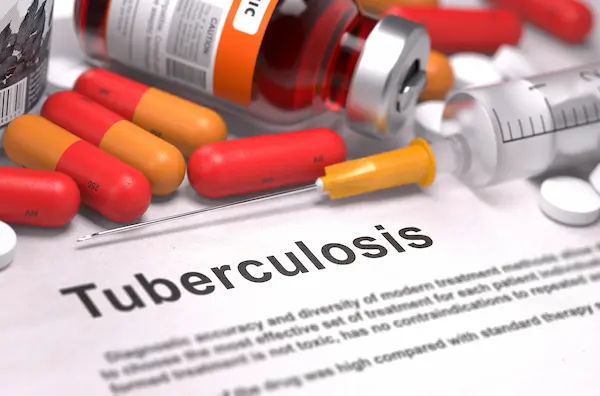Acanthosis Nigricans Overview and Management
Know about aconthosis nigricans, its appearance, causes, symptoms, diagnosis, management and treatment. Learn how it affects your health.

Written by Dr. Dhankecha Mayank Dineshbhai
Reviewed by Dr. Rohinipriyanka Pondugula MBBS
Last updated on 13th Jan, 2026

Introduction
Acanthosis nigricans (AN) is a skin condition that causes dark, velvety patches, usually in body folds like the neck, armpits, or groin. While it is not harmful by itself, it can be a sign of an underlying health issue that needs attention.
If you or someone you know has noticed these changes in the skin, understanding the causes, symptoms, and management can help in taking the right steps toward better health.
What Does Acanthosis Nigricans Look Like?
The most noticeable sign of AN is thick, dark, and velvety skin patches. These patches often appear in areas where the
skin folds, such as:
- Neck
- Armpits
- Groin
- Elbows
- Knuckles
- Under the breasts
Sometimes, the affected skin may also feel slightly raised or have a rough texture. In rare cases, itching or an unusual odour may accompany these patches.
Consult General Practitioner for Personalised Advice
What Causes Acanthosis Nigricans?
Acanthosis nigricans is not a disease itself but a symptom of an underlying condition. The most common causes include:
1. Insulin Resistance & Diabetes
The most frequent cause of AN is insulin resistance, where the body does not respond properly to insulin. This is often
linked to type 2 diabetes or prediabetes. High insulin levels trigger skin cells to grow abnormally, leading to dark
patches.
2. Obesity
Being overweight increases the risk of insulin resistance, which can lead to AN. Losing weight often helps reduce or
even reverse the condition.
3. Hormonal Disorders
Conditions like polycystic ovary syndrome (PCOS), thyroid problems, or adrenal gland disorders can also contribute to AN.
4. Genetic Factors
In rare cases, AN can run in families without any underlying disease.
5. Certain Medications & Health Conditions
Some medicines (like birth control pills or steroids) and even certain cancers (though rare) can cause AN.
How Does Acanthosis Nigricans Affect Health?
While the dark patches themselves are harmless, they serve as an important warning sign. If left unaddressed, the
underlying conditions (like diabetes or insulin resistance) can lead to serious health problems, including:
- High blood sugar levels
- Heart disease
- High cholesterol
- Increased risk of infections
How Is Acanthosis Nigricans Diagnosed?
If you notice dark, velvety patches on your skin, consult a doctor. They may:
- Examine the affected skin
- Ask about your medical history
- Recommend blood tests (to check blood sugar, insulin levels, or hormones)
- Suggest further tests if an underlying condition is suspected
Get Your Health Assessed
Management & Treatment
Since AN is often linked to insulin resistance or obesity, the best approach involves treating the root cause. Here are
some ways to manage it:
1. Lifestyle Changes
- Healthy Diet: Focus on whole grains, lean proteins, fruits, and vegetables. Reduce sugar, refined carbs, and processed foods.
- Weight Management: Losing even 5-10% of body weight can improve insulin sensitivity and reduce skin darkening.
- Regular Exercise: Physical activity helps lower blood sugar levels and improves insulin function.
2. Medical Treatments
- Diabetes Management: If AN is due to diabetes or prediabetes, medications like metformin may help.
- Topical Treatments: Creams containing retinoids or urea can help lighten the skin, but they don’t treat the underlying
cause. - Hormonal Therapy: If PCOS or thyroid issues are involved, hormonal treatments may be needed.
3. Skin Care Tips
It includes
- Keep the affected areas clean and dry to prevent irritation.
- Avoid excessive scrubbing, which can worsen darkening.
- Use mild moisturisers to keep the skin soft.
When to See a Doctor?
If you notice any unusual dark patches on your skin, especially if they appear suddenly or spread quickly, consult a
doctor. Early diagnosis can help manage underlying conditions effectively.
Final Thoughts
Acanthosis nigricans is more than just a cosmetic concern—it’s your body’s way of signalling an underlying issue. By making healthy lifestyle changes and seeking medical advice, you can manage this condition effectively. Remember,
small steps today can lead to big improvements in your health tomorrow.
Consult General Practitioner for Personalised Advice
Consult General Practitioner for Personalised Advice

Dr. B Rachana
General Physician/ Internal Medicine Specialist
8 Years • MBBS, Fellowship in Diabetes, Fellowship in Applied Nutrition,CCEBDM(Diabetes)
Bengaluru
Apollo Clinic, JP nagar, Bengaluru

Dr. Mainak Baksi
General Practitioner
13 Years • MBBS , MD (MPH)
Howrah
Mainak Baksi Clinic, Howrah
(50+ Patients)

Dr Suseela
General Physician
5 Years • MBBS
Bengaluru
Apollo Medical Center, Marathahalli, Bengaluru

Dr. Rajib Ghose
General Physician/ Internal Medicine Specialist
25 Years • MBBS
East Midnapore
VIVEKANANDA SEBA SADAN, East Midnapore

Dr Aswathy D C
General Practitioner
6 Years • MBBS
Bangalore
Apollo Clinic Bellandur, Bangalore
Consult General Practitioner for Personalised Advice

Dr. B Rachana
General Physician/ Internal Medicine Specialist
8 Years • MBBS, Fellowship in Diabetes, Fellowship in Applied Nutrition,CCEBDM(Diabetes)
Bengaluru
Apollo Clinic, JP nagar, Bengaluru

Dr. Mainak Baksi
General Practitioner
13 Years • MBBS , MD (MPH)
Howrah
Mainak Baksi Clinic, Howrah
(50+ Patients)

Dr Suseela
General Physician
5 Years • MBBS
Bengaluru
Apollo Medical Center, Marathahalli, Bengaluru

Dr. Rajib Ghose
General Physician/ Internal Medicine Specialist
25 Years • MBBS
East Midnapore
VIVEKANANDA SEBA SADAN, East Midnapore

Dr Aswathy D C
General Practitioner
6 Years • MBBS
Bangalore
Apollo Clinic Bellandur, Bangalore








